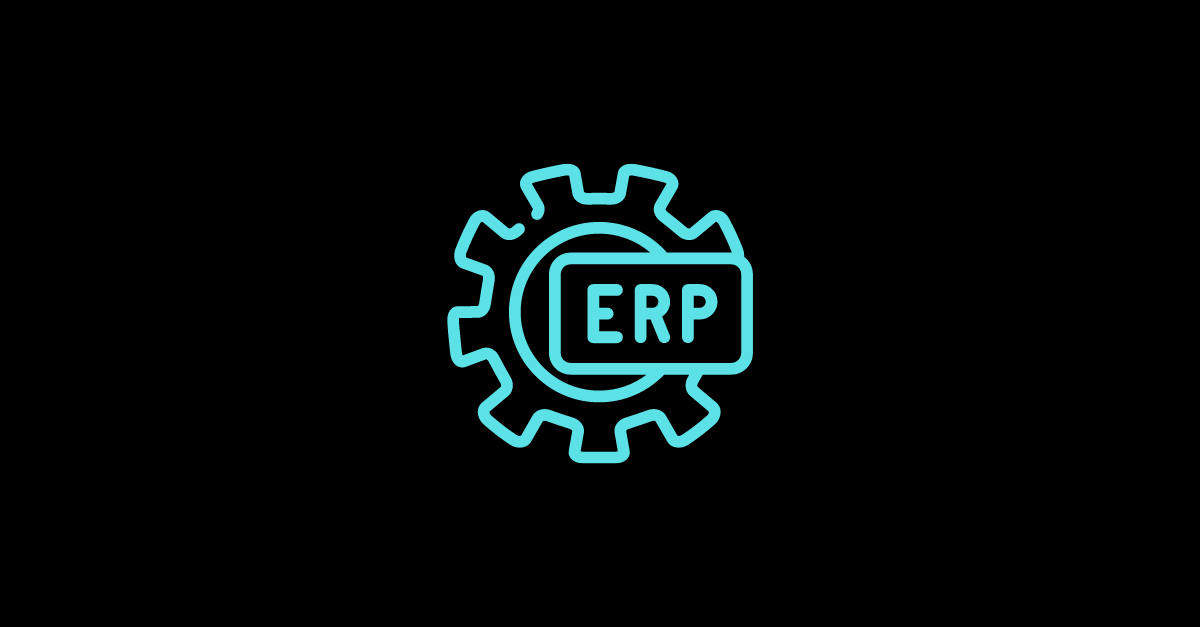Amidst a highly competitive business environment, effective inventory management is a critical aspect that can significantly influence a company's success. However, managing inventory is a complex task often riddled with challenges. Thankfully, modern technology has made it possible to navigate these hurdles with sophisticated software like Enterprise Resource Planning (ERP) systems. This blog post will delve into how ERP can help you solve your inventory problems and streamline your business operations.
Understanding Enterprise Resource Planning
Enterprise Resource Planning, or ERP, involves leveraging software solutions to automate, streamline and unify key business procedures such as procurement, sales, marketing, finance, inventory management, and human resources. The principal aim of ERP is to create a seamless flow of data across all departments within a business, whilst also managing external stakeholder relationships.
One of the key benefits of ERP is the elevation of efficiency levels, facilitating the reduction of operational costs, enhancing productivity, and offering decision-makers in the organisation a reliable and up-to-date source of data. A properly implemented ERP system can abolish monotonous, repetitive tasks and mitigate the necessity for manual data entry. Consequently, this leads to an improvement in data precision, the facilitation of streamlined business procedures and the eventual growth of the business.
ERP systems are particularly instrumental in making organisational workflows more manageable, optimised, and controlled. The automation of essential tasks and procedures eliminates the need for redundant tasks, thus allowing employees to focus more on strategic initiatives that contribute to business growth and customer satisfaction.
Moreover, ERP systems also offer companies a competitive edge by providing real-time information about different business processes. This helps businesses to quickly respond to changes in business environments, whether it's a shift in customer preferences or a sudden change in the supply chain. By enhancing visibility and fostering a collaborative work environment, ERP systems also contribute to better teamwork and increased employee satisfaction.
Finally, an ERP system aids in regulatory compliance by providing comprehensive reports that could be used for audit and compliance purposes. Therefore, ERP is not just a tool for better resource management, but also a strategic asset that can drive business performance and growth.
The Role of ERP in Inventory Management
Inventory management, a critical facet of business operations, is deeply integrated into ERP systems, acting as a potent tool for coordinating and overseeing inventory items. Leveraging ERP for inventory management allows access to real-time data regarding the state of inventory levels, thereby supporting informed decision-making processes.
ERP systems offer a clear view into significant inventory control metrics and key supply chain operations, such as despatches, warehousing activities, and deliveries. Functions like order fulfilment, procurement, and warehouse administration are efficiently supported by these systems.
Beyond maintaining an accurate tally of products, ERP software can discern and monitor the precise whereabouts of each item. This complete visibility into inventory facilitates the effective stewardship of business resources, reduces storage costs, enhances operational efficiency and minimises issues related to overstocking and understocking.
ERP systems further facilitate the automation of key tasks within the inventory management process, eliminating redundant tasks and allowing employees to concentrate on strategic activities that drive business growth and customer satisfaction.
This real-time inventory tracking system, coupled with the detailed insight it provides, enables businesses to swiftly respond to changes in demand, ensuring the supply chain remains flexible and resilient in the face of market fluctuations. Consequently, the business is positioned to operate more effectively and efficiently, ultimately improving customer satisfaction and driving business growth.
Finally, it's worth noting that a well-implemented ERP system supports regulatory compliance through its ability to provide exhaustive reports that can be used for audit purposes. This makes the system a crucial asset in not just optimising resource management, but also in ensuring the business is in line with regulatory guidelines.
Thus, ERP systems in inventory management are transformative, offering a way to simplify complex inventory tasks and drive efficiency, while also providing valuable insights that can bolster strategic decision-making and foster growth.
Keeping Up with Technology Trends: Cloud vs On-Premise ERP
When considering ERP systems, one primary distinction that surfaces is the choice between cloud-based and on-premises options. Each brings its unique set of benefits and potential downsides, and the ideal solution varies depending on your organisation's specific needs and available resources.
Cloud-based ERP systems are hosted on the servers of the service provider and are accessed through the internet. This configuration presents multiple advantages including enhanced flexibility, scalability, and notable cost reductions on hardware and IT staffing. A noteworthy feature of cloud ERP systems is their capacity to remain updated with the latest enhancements and security measures, ensuring your company stays abreast of current trends without additional effort or resources.
Contrarily, on-premises ERP systems are installed and run on your own hardware and servers. This setup grants more control over your systems and data, an aspect that might be favoured by companies handling particularly sensitive information. However, it is essential to remember that this approach comes with increased initial costs and necessitates continual maintenance and updates, which could put a strain on your IT department.
The decision between these two ERP systems is contingent on multiple factors, from financial resources to the nature of the data handled and the capacity of your IT team. Balancing these aspects will guide you towards the ERP system that best fits your operational needs and strategic objectives. It is crucial to remember that regardless of the type of ERP system, the goal remains the same - optimising business processes, managing resources effectively and ultimately driving business growth and success.
Moving forward, as technological trends evolve, businesses must stay agile, ready to adapt their ERP systems in response to advancements in technology and shifts in business needs. Therefore, selecting an ERP system that is not only fit for your current needs, but also possesses the flexibility and scalability to accommodate future growth and technological progress is critical. This foresight ensures that your ERP system remains a valuable tool for business efficiency and success, regardless of how the technology landscape transforms.
Enterprise Resource Planning and Cyber Security
Navigating the digital world of today where cyber threats are omnipresent, ensuring the security of your ERP system becomes a critical concern. Given that ERP systems often harbour sensitive company data, they can become enticing targets for cybercriminals.
Premier ERP providers consider this a priority and incorporate stringent security measures to safeguard your data. This encompasses encryption to secure data, user authentication to verify the identities of users, and regular security updates to keep abreast with the constantly evolving cyber threat landscape.
When selecting an ERP solution, it is crucial that it aligns with your organisation's cybersecurity strategies. Your ERP system must not only comply with the internal security protocols of your business but also with industry compliance standards.
Furthermore, as the threat of cyber attacks continue to grow in sophistication, it becomes increasingly important to have a proactive approach towards ERP security. This means keeping a close eye on the latest security trends and threats, and ensuring your ERP provider does the same. It also means regularly reviewing and updating your security policies and protocols to reflect the changing landscape.
Additionally, providing training to employees about the importance of data security and safe practices can add an extra layer of protection. After all, the majority of cybersecurity threats exploit human error. So, making sure everyone who uses the system understands the potential risks and how to mitigate them can go a long way in securing your ERP system.
The bottom line is that, while ERP systems can bring numerous benefits to your business, they must be implemented and managed with security as a priority. The risk of a security breach is a serious one, but with the right measures in place, your ERP system can be a secure and valuable tool for your business.
The Future of Enterprise Resource Planning
The landscape of ERP is in a continuous state of flux, with forward-thinking innovations such as Artificial Intelligence (AI), Internet of Things (IoT), and blockchain set to radically transform the way we manage our business resources. Future iterations of ERP systems are poised to be even more technologically advanced, offering capabilities such as real-time data analytics, predictive analytics, and intelligent automation features.
Being one step ahead of these developments is of paramount importance for IT professionals. The selection of an ERP system should not merely meet the immediate needs of the business but must also exhibit the scalability and adaptability to accommodate not just the growth of the business, but also the rapid advancements in technology.
In the future, we can anticipate ERP systems to integrate more comprehensively with AI and machine learning, thereby offering businesses even deeper insights and predictive analytics capabilities. This may lead to more sophisticated demand forecasting, optimised supply chain management, and the ability to make more data-driven strategic decisions.
Additionally, as the Internet of Things continues to expand, ERP systems could soon manage not only traditional business resources but also a vast array of interconnected devices. This could result in unparalleled levels of operational efficiency and new, innovative business models.
The emergence of blockchain technology presents another exciting frontier for ERP. Its inherent transparency and security could make it a vital component of future ERP systems, particularly in industries where traceability is key.
Also, as cybersecurity threats become increasingly sophisticated, we can expect future ERP systems to feature advanced security measures to protect sensitive business data.
In conclusion, the future of ERP is bright and brimming with potential. As technology continues to evolve, so too will the capabilities of ERP systems. And as IT professionals, it is our role to keep pace with these changes, ensuring our businesses remain at the cutting edge of operational efficiency, data security and resource management. Embracing the future of ERP is not just about technological advancement - it's about steering our businesses towards sustained growth and success.

